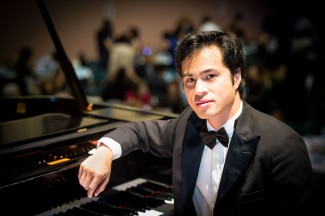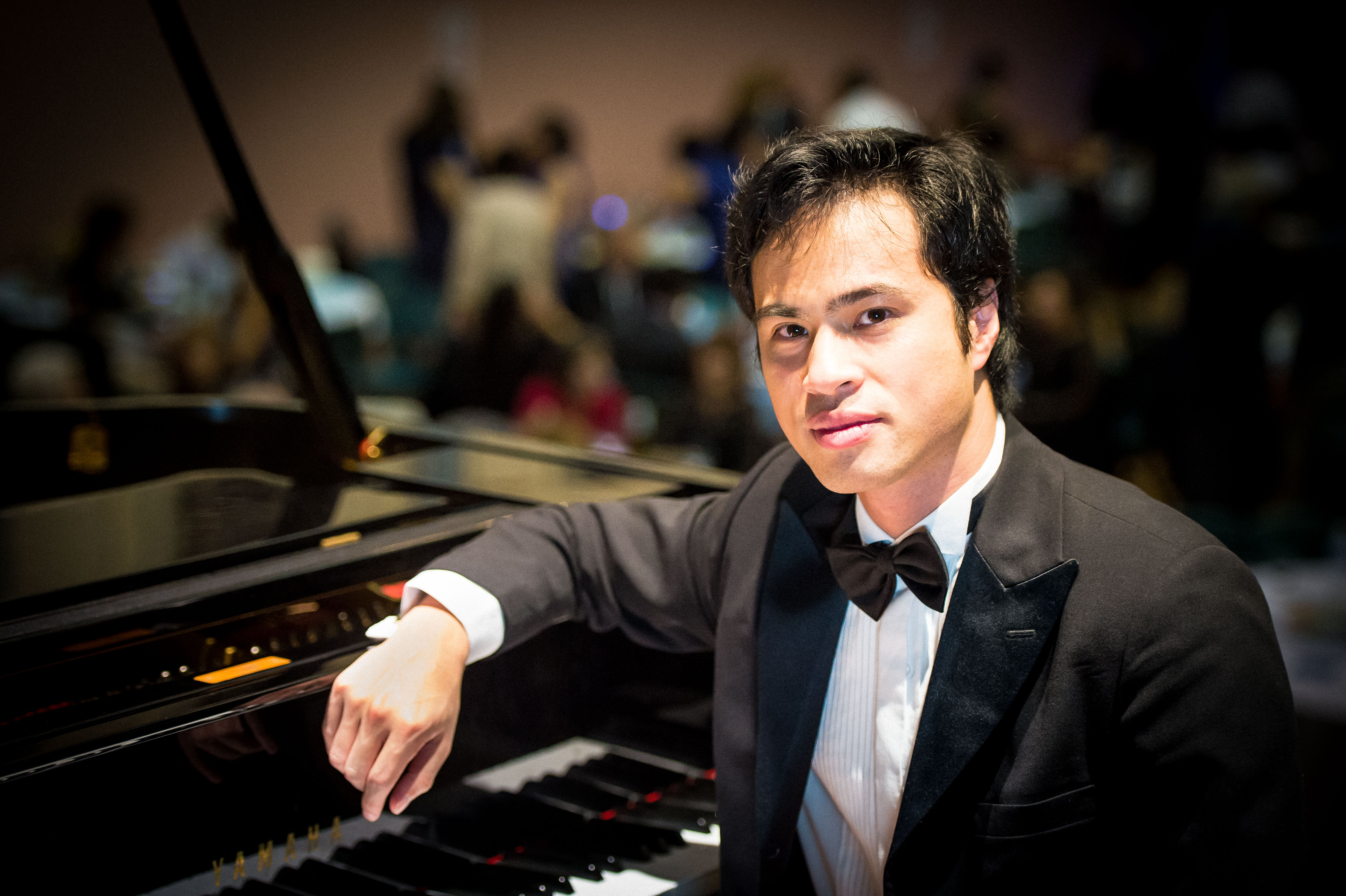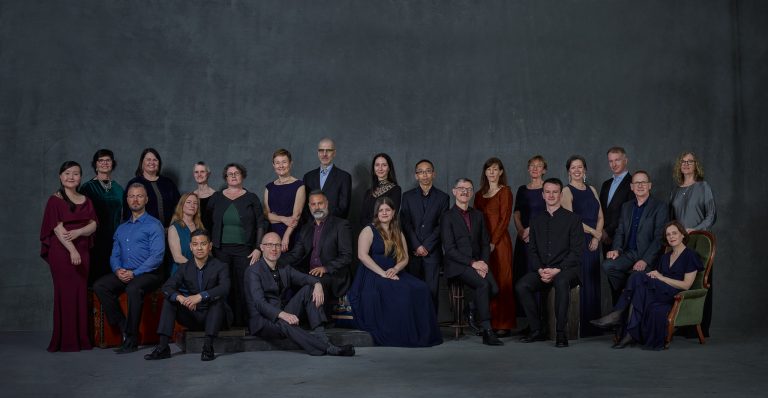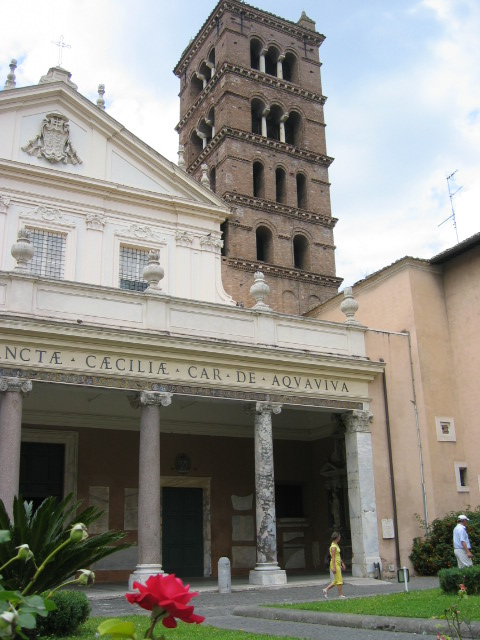Hoang Pham On “Being The Best Pianist I Can Be”

Pianist Hoang Pham, winner of the 2013 ABC Symphony Australia Young Performers Award gives a solo recital in Sydney in mid-October.
He started his piano studies aged just three and a half, after arriving in Australia as a babe in arms via a refugee boat from Vietnam. After studies at the Australian National Academy of Music and the Manhattan School of Music in New York, his career has blossomed to include numerous awards, recordings and a busy performing schedule. From his home in Melbourne, Hoang Pham gave SoundsLikeSydney these fascinating insights into the influences that have shaped him into the musician that he is and the importance of being independent.
SoundsLikeSydney: What have you been up to, professionally, since winning the 2013 Symphony Australia Young Performer’s Award?
Hoang Pham: Not much has changed. Compared to many others, I was a late bloomer in winning this prestigious award. I was very proud to win it, in my home city of Melbourne and I fully recognise the immensely talented colleagues I was up against. I worked hard and knew that I was good enough to win but I was also aware that on any other day, somebody else could’ve walked away with the prize. When I gave my winner’s speech I said that the award would inspire me to keep on working hard and that it was simply a touchstone to greater things in the future.
I have continued performing concertos with major symphony orchestras in Australia, formed a new trio in which I played for one year, and continued to present my own events, but with increasing vigour and devotion because I always wanted to be musically independent and to ensure I could survive on my own.
This year I returned to playing solo piano recitals and it has been a regeneration for my energies in being the best pianist I can be.
SLS: You’ve performed in a number contexts – solo, chamber, symphonic. Do you have a favourite and why?
HP: I enjoy the solo piano recital the most, followed by chamber music – piano trios for example – and then concertos. Today, on the local scene at least, the solo recital is a rare commodity. It takes an immense amount of preparation and many don’t get to it because they don’t have a presenter to give them an opportunity that is worth the time spent in learning and memorising the music and then playing it at the highest level possible. I have managed to find my own pathway, my own audience, and doing solo recitals this year has been the most rewarding thing, musically, that I’ve ever achieved. I still play chamber music and concertos whenever possible but the solo recital is my main focus
SLS: How do you begin to learn a piece that is new to you?
HP: I don’t have any special process. I like to be as natural as possible. I hear it performed live, or on recording, and then go to the piano, play through the music many times, then the details take care of themselves. Preparing a piece for the stage, means digesting it musically and memorizing it for public performance. This takes time. You need to familiarise yourself with the piece physically, then mentally. You need to live with the music – performing it again and again. You can’t skip any of these steps to play your very best.
SLS: How are you influenced by hearing another performer play a piece that you’re learning?
HP: Being influenced by a recording in the beginning is just part of the process of getting to know a piece of music. People naturally change their ideas and thoughts about a piece of music over time. Idon’t believe that this influence early on is detrimental. In fact, it often spurs a love for a piece of music that gets you to study the piece in-depth, firstly perhaps to capture a few beautiful moments from a performance that you loved – you want a piece of it for yourself! Once you have this, things naturally unfold and develop in your own personal way. This is when it becomes more of what you represent.
SLS: Can you tell us about your work as a chamber musician and the ensemble that your formed?
HP: I formed Trio Bresciani early in 2014 and I remained with them for a year before I moved onto my own personal projects. Like my previous group Melbourne Piano Trio, we played central repertoire and the occasional new Australian work. The focus of all my chamber groups over the years has been to simply present concerts and play our very best. I never concerned myself with much other than the music itself and my audience. These are the two things most important to me and with my chamber groups, the focus on these two things remained the same.
SLS: You have won numerous awards. How important is it to the career of an emerging musician to win awards? Can success come just as easily to someone who doesn’t compete?
HP: Winning awards, is important as it can help build profile. But many people make careers out of a few awards and many others prosper without ever winning anything significant. A music career comes down to a few things: how much you want it and how hard to work for it, how long you can hang around to build your profile, and ultimately, how good you are.
How good you are may have little to do with the awards you win although it has some correlation. My main point is that success, and surely that means meaningful concerts and an audience that is devoted to turning up to seeing you perform – these things can only occur over time. The public flocks to musicians who over the years, give performances that keep making them come back for more. There is personality involved too. It is very hard to put it into a few sentences! But on the question of whether one can make a career NOT winning competitions, the answer is certainly yes. And many have and are doing this already.
SLS: You’ve performed a wide repertoire from Bach to Gershwin; the Great Romantics seem to feature a lot in your programmes. Who are your favourite composers and why?
HP: I enjoy performing all sorts of music but when I started to focus on recitals, it was natural that many of the pieces were from the Romantic era. I played these pieces as a young student and so naturally, they were the pieces that I gravitated towards when I returned to playing recitals this year. I don’t subscribe to the belief that you need a wide repertoire to have a career – if this means anything at all! You need to play what you want to play and have a passion for, whether this means you play everything from Bach to Gershwin or whether you just play a lot of Bach, or a lot of the Romantic stuff.
Although I have phases where I focus on one period, I don’t think I’ll ever get stuck playing one collection of works. My point is that to be artistically happy, you have to work out a way to do more of the things you want to do, and when you want to do them. Forming my own company to present my own events, to have my own audience, has helped me achieve greater artistic freedom and artistic achievement. It is personal, and this is when the playing is at its best. I never play anything that is not ripe for performance!
SLS: Are there any pianists who have served as role models for you?
HP: When I lived in New York for six years, I heard tremendous performances from pianists like Evgeny Kissin, Andras Schiff, Stephen Hough and others. A city like that affords many inspirational moments at venues like Carnegie Hall. I have learned the most from these experiences and also the wisdom of my teachers.
SLS: Could you tell us about your recordings?
HP: I have recorded about half a dozen albums already. I always try to do my recordings independently, and often, they are live performances. I enjoy listening to live recordings and producing them. I have released two of my recitals at the Melbourne Recital Centre on CD and a few other live performances of my trio concerts have been produced also. I never have been a big fan of the studio. In fact, I dislike it totally. I prefer to do it live, and if it’s good enough, I release it. I never go back, I only move forward.
SLS: If you could take three pieces of music with you to a desert island, what would they be?
HP: Bach Goldberg Variations, Rachmaninoff Piano Concerto No 3 and Chopin Preludes Op 28.
SLS: The ABC Symphony Australia YPA was discontinued at the end of 2015 and has been revived with private funding in 2017. Your reaction to its closure?
HP: I wasn’t surprised that it ran into financial problems. Many arts organisations go through some form of closure and revival. Of course, I was very saddened by the news initially but I think it has a bright future now and the music community is all the better for its continuation.
SLS: What is your own piano and why do you like it?
HP: I have three pianos in my home. Two Yamaha ‘grands’ in my teaching studio where I also practice and then I have a 100+-year-old Bechstein ‘grand’ in my living room. The latter I absolutely adore and I play it for my guests whenever I’m hosting!
SLS: What is your view on prepared piano techniques – are they a valid direction for the evolution of the piano and piano music?
HP: Prepared piano is a very specific area of focus. The homogeneity of piano playing around the world is a negative thing but this has much more to do with the personality of teaching and the students themselves rather than the piano technique being taught. Musicians can be more adventurous and have more personality. People are afraid to express themselves. They spend their whole lives worrying about what other people think: what my teacher thinks, what the jury thinks. If there were something to worry about, I think it ought to be what they themselves think and then perhaps the audiences who attend their concerts. But it is very hard, because of the training of classical musicians, to break away from the feeling that you should always be judged or look somewhere for validation. Ultimately, it comes from within.
Shamistha de Soysa for SoundsLikeSydney©
Click here to read more about Hoang Pham’s upcoming Sydney recital.




